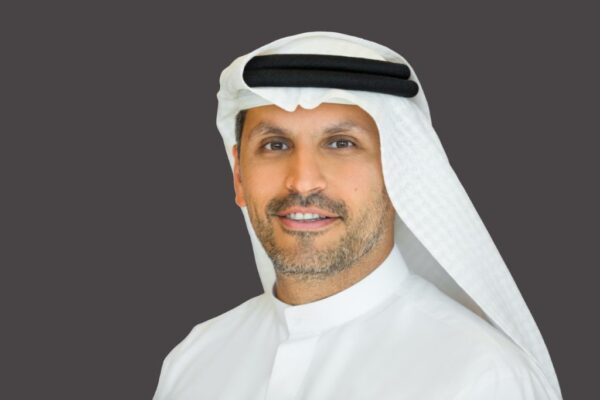As global economic power shifts, Abu Dhabi’s sovereign wealth funds are emerging as leading driving forces, combining strategic returns, economic diplomacy, and targeted deployment across the African continent.
In recent years, Abu Dhabi has developed a centralised but diversified investment strategy, with sovereign wealth funds managing over USD 1.7 trillion in assets. Moving beyond oil, these funds focus on technology, infrastructure and value chains, with Africa as a key area of expansion. Rather than short-term speculation, they follow a long-term approach, using Mubadala, ADIA and ADQ to build influence through targeted, strategic investments.
The year 2024 marked a turning point. According to Global SWF, Mubadala became the world’s most active sovereign wealth fund, deploying more than USD 29 billion and overtaking Saudi Arabia’s PIF. This rise is notable not only for its scale, but also for its sectoral focus, ranging from AI to healthcare and private debt. Behind this momentum lies a clear ambition: to reposition Abu Dhabi as a strategic centre of gravity, including through its ties with Africa.
Africa: the new frontier of Emirati influence
Abu Dhabi’s sovereign wealth funds view the African continent as a space of opportunity, but also as a long-term lever for projecting influence. ADQ has recently made a strategic pivot in this direction. In 2024, it signed a landmark agreement worth USD 35 billion with Egypt, presented as the largest foreign investment in the country’s history. The project, centred on the development of the Ras El-Hekma zone, goes far beyond a simple return on capital: it reinforces a logic of strategic alignment with a key partner facing a severe economic crisis. ADQ has also stepped up its presence in Turkey, another regional crossroads linking Europe, Asia and Africa.
Mubadala, meanwhile, plays a leading role in technology investment. The fund actively supports the G42 group, specialised in artificial intelligence and digital infrastructure, and involved in projects across Africa. In April 2024, Microsoft announced a USD 1.5 billion investment in G42. By partnering with African actors on critical issues such as data centres and cybersecurity, Abu Dhabi aims to shape continental digital ecosystems through its own capabilities.
Finally, ADIA’s more discreet but essential role completes this architecture of influence. While it focuses on traditional international investments, ADIA holds significant co-investment capacity, often mobilised in joint projects alongside the other two funds. Collectively, these actions enable the emirate to pursue fluid financial diplomacy without excessive reliance on state-led initiatives.
Patient and structuring capital
Abu Dhabi’s approach stands out for its methodical long-term perspective, closer in spirit to development capital than speculative finance. ADQ offers a compelling illustration of this logic. Created in 2018, the fund has doubled its assets in four years, reaching around USD 250 billion in 2025. Unlike its older counterparts, it invests little in bonds or public markets, favouring majority stakes in targeted sectors such as logistics, healthcare, agri-food, and energy. Its CEO, Mohamed Hassan Alsuwaidi, emphasises a gradualist approach: identifying “white spaces” in local economies and strengthening regional value chains, particularly in North Africa.
Emirati funds have also demonstrated their ability to mobilise vast resources in rapidly evolving sectors. In Africa, this has translated into growing support for major projects in renewable energy, port infrastructure, and the pharmaceutical industry. The Abu Dhabi–Cairo axis here serves as a laboratory for a model that could be replicated elsewhere on the continent.
This strategic patience is matched by a streamlined internal organisation. With just 250 employees, ADQ is among the leanest sovereign wealth funds in the world. This structure encourages a culture of responsiveness and direct expertise, in which each analyst is also a decision-maker. The model stands in contrast to the heavier bureaucracies of other regional funds.
A convergence of finance, technology, and geopolitics
While often compared to Saudi Arabia’s PIF, Abu Dhabi’s sovereign funds follow a distinct path. Unlike the PIF, which focuses on domestic development, Emirati funds invest abroad to ensure long-term, sustainable growth. Their presence in Africa reflects this outward strategy, combining economic interests with geopolitical positioning through sectors like AI, blockchain and digital infrastructure. In 2024, as the PIF scaled back its international spending, Emirati funds expanded theirs, seizing opportunities through agile partnerships with global players such as Apollo and Goldman Sachs.
Finally, Abu Dhabi’s capital flows into Africa cannot be dissociated from a broader ambition to consolidate its global standing. By becoming indispensable in structuring strategic projects on the continent, the emirate strengthens its influence while offering partner states an alternative to traditional sources of finance. This posture, at times that of a facilitator, even an economic lifeline, enhances Abu Dhabi’s political as well as financial stature.


